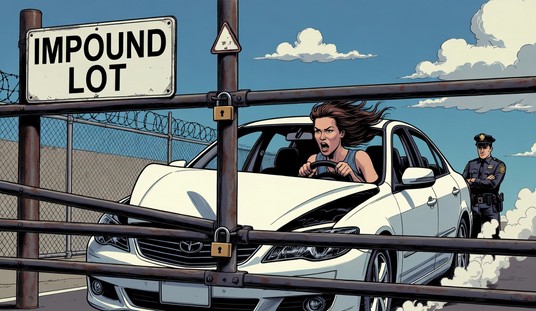Lana Del Rey has been built up over the last few months as the great white hope for music in 2012, a songwriter with the creativity to push herself in a unique direction while crafting music with hooks that are timeless and unforgettable. She’s “the gangster Nancy Sinatra,” a sultry musical minx who pouts her lips and controls the world.
Two weeks before her album Born To Die was set to release, she became the second artist to appear as the musical guest on Saturday Night Live who had not yet actually issued an album. She was a YouTube sensation, a modern example of where internet marketing can get you.
Hours after her performance, however, the ground was shaking beneath her career as a backlash mounted and the internet which built her up began rabidly tearing her down.
To get a better idea of what happened, it’s worth taking a look at a sketch which had aired earlier in the episode of SNL called “You Can Do Anything.” Vanessa Bayer and Bill Hader are hosts of a talk show touting the modern generation of YouTube sensations. “Now, thanks to technology, and everyone being huge pussies about everything, it doesn’t matter if you have skills or training or … experience, you can do it!” Hader says, describing a trio of inept performers who all feel they’re more famous than they truly are.
The rise of Lana Del Rey mirrors that sketch in a way which makes it seem oddly prescient in regard to what was coming when the singer would soon take the stage to perform her biggest hit to date, “Video Games.” She’d worked under her birth name, Lizzie Grant, for years and even got a recording deal with an independent label, but when “Video Games” became a hit on YouTube, she soon found herself signed to Interscope Records, which gave her the ability to fully eliminate the Lizzie Grant background details and fully become Lana Del Rey. Then the press run began, building her up relentlessly as the next big thing in music, when really her only experience had been in the studio.
Not that there’s anything wrong with that. If you’re good at making videos, in an arena where you can tweak things until they’re exactly the version of your inner thoughts you want to release to the world, that’s perfectly reasonable. So is recording music in a studio, where a good singer can sound confident and assured, never having to step outside her comfort zone.
But on a live stage – particularly SNL’s live stage, appearing before millions on an iconic television show where image and sound don’t always blissfully mix – there’s not always a guarantee that you’ll get it right. One take, in front of a live audience, can make or break your carefully crafted public image. In the space of ninety minutes, a carefully built world where Lana Del Rey could be considered one of 2012’s surest things becomes one where the two-week wait to actually hear her debut album becomes a gauntlet she’ll have to run, hoping that she can survive the backlash and emerge at the other end unscathed.
To be honest, it didn’t seem unexpected that there would be a backlash against a performer like Lana Del Rey, who had a taste of indie viral success with a solidly crafted debut, getting signed to the major label before she’d built a reputation in the underground. Mark Richardson of Pitchfork was among the first to completely eviscerate her entire persona when he wrote about the success of “Video Games” in late November.
For me, thinking about this year in independent music, Lana Del Rey was like the most photographed barn in America. There were times when I had trouble actually hearing her, and to follow along with her strange meme was indeed to surrender to a collective perception. She saw some old film clips and heard some old songs and said, “This is me.” Then she showed them to us, and we believed her.
It’s that kind of overt hyperbole which Pitchfork has staked its claim upon, even down to their tagline: Stick a pitchfork in it, it’s done … or, in other words, if we hate it and you like it, you suck. There’s something incredibly hateful about referring to someone as “the most photographed barn in America” when having heard fewer than a handful of songs. But that ‘s the way Pitchfork and sites of its ilk work. First a band’s the greatest you’ve ever heard, then they’re the worst. Or worse, they were great but sold out and actually made some money off their work. Slate has been writing about the phenomenon since 2006, and they sum up the impetus of such sites aptly when discussing the case of Bill Baird, a musician from an Austin outfit called Sound Team, who “drove out to a park near his home, slapped a sign with his band’s name onto the chest of a life-size dummy, and stabbed the thing with a giant pitchfork. Then, as a friend filmed the action, Baird threw the dummy off a giant cliff. Later, he set it on fire. The next day, he posted the 51-second clip on YouTube. The impetus for the whole stunt was a 3.7 out of 10 review from online music magazine Pitchfork Media, which had described Sound Team’s major-label debut as having ‘a shortage of, like, actual songs.'”
Pitchfork needs to provoke to survive—a strategy that arguably extends to publishing verbose and unreadable writing. [Pitchfork founder Ryan] Schreiber has admitted that he trusts writers to “their own style and presentation,” but there’s not much that can excuse the writing in this 2004 review: “The epic ‘Visiting Friends’ gathers in faceless, mutated ghosts (i.e., oddly manipulated vocalizations from the duo) to hover over their dying fire in visage of nothing better than the tops of trees.” Or this 2003 take on a TV on the Radio disc: “Bands have played up singers in the past, but here, the single-minded focus of every musical element seems designed purely to elevate the vocal melodies out of the realm of the merely ‘real’ and into the hyper-real. … Without hyperbole, the effect is electrifyingly direct, nearly mesmerizing, and nothing quite like anything else I can recall.”
“Indie fans are tragically hip and cannibalize what at first they loved, at the first sign of vulnerability,” says Jonathan Scott, digital media manager at Indianapolis Monthly. “The backlash is inevitable. People always turn on that which they exalted at first. Almost always. We’re all too human. The public relishes a fall from grace, and this girl is ready-made for that.”
Del Rey herself has been more often than not silent on this subject, though a recent MTV interview did allow her a chance to let loose a bit when asked about her authenticity.
“I just think it’s a reflection of the time we live in,” she told writer James Montgomery. “People love terrible news, they love when things go wrong, and they like to see people going off the tracks and people fighting, because it’s exciting, and life is f—ing boring.”
In the case of the backlash, her SNL performance only fueled the flames for those looking for a burn-it-to-the-ground torching of her carefully cultivated image. She takes to the stage standing facing away from the camera, she has her hands covering her face, and from the first moments the backing music completely overwhelms her. She sings eyes closed, overemphasizing the vamp in her vocals while failing to show any emotion or do much of anything on the stage. It was like candy for her critics, as they relished the shredding they gave on Twitter and Facebook.
Meanwhile the fans who actually are willing to give Del Rey a chance through what is supposed to count – the music – haven’t even gotten much chance to hear what’s coming on Born To Die, which has been all but embargoed by her supposedly hip, forward-thinking handlers.
“I’m baffled by the promotional strategy behind Lana Del Rey, to be honest,” says Eric Danton, music critic for the Hartford Courant, who wrote about the backlash in December, before the SNL performance was announced. “While a positive fan reaction to her SNL performance wasn’t critical, the negative reaction could well subvert the momentum, making her look like a product of hype rather than a singer to get legitimately excited about. Meanwhile, the handful of writers I know who have heard the album have been allowed to listen on the condition they not share their reactions on Twitter, et cetera. It’s this weird combination of overexposure and publicity lockdown.”
Bob Lefsetz was somewhat less charitable in his daily email to readers of his industry insider blog The Lefsetz Letter the day after the SNL performance.
Having never known an era prior to music on television, having grown up with the self-promoting tendencies of the Internet, these … youngsters believe if they just get their moment, the world will embrace them, they’ll become rich, they’ll become FAMOUS! Well, Lana Del Rey is now famous, but not in the way of Joni Mitchell, not even Marianne Faithfull, but Ashlee Simpson, who went on SNL once, lip-synched, and crashed her career overnight.
In other words, to a wide segment of the hip audience she was hoping to court with this SNL performance, Del Rey has torched her reputation at just the time she needed to have listeners a hundred percent engaged, ready to spread the word about how amazing she is, how they simply cannot miss Born To Die. The album’s release was programmed to be an event for indie fans, driving her album to the top of the charts even if a wide swath of America had never heard her music.
That plan has now backfired; she can’t get the mystique back. And while that could be a good thing, proving she is more human than her perfectly controlled image suggests, now she’s a love it or hate it proposition. The album may still sell well, since her music in recorded form doesn’t have to worry about having been created in a single take. But a large segment of the SNL audience had never heard “Video Games” – these listeners were exposed to her for the first time on the 14th, and what they saw was a deer in the headlights, thoroughly unprepared to be anything but a studio artist.
The backlash genie can’t be put back in the bottle, no one’s going to change the tenor of the discussion amongst members of the blogging and critical community, and in the case of Del Rey, the music’s being hidden from the critics who might be most willing to honestly speak about the quality of what Born To Die offers.
It’s that music which will eventually get the last word, proving whether Del Rey is capable of fighting past this misstep or whether she’ll fall from sure thing to footnote in the archive of 2012 pop music.
“I’d rather it was just as simple as being just the songs and no one else talking about it at all,” Del Rey told Billboard for their January 13th cover story. “It makes things more bittersweet instead of just clear and easy. It just seems to have taken a funny turn, I’m not really sure it’ll come back around. I don’t know. But the record is really good. I have that.”









Join the conversation as a VIP Member